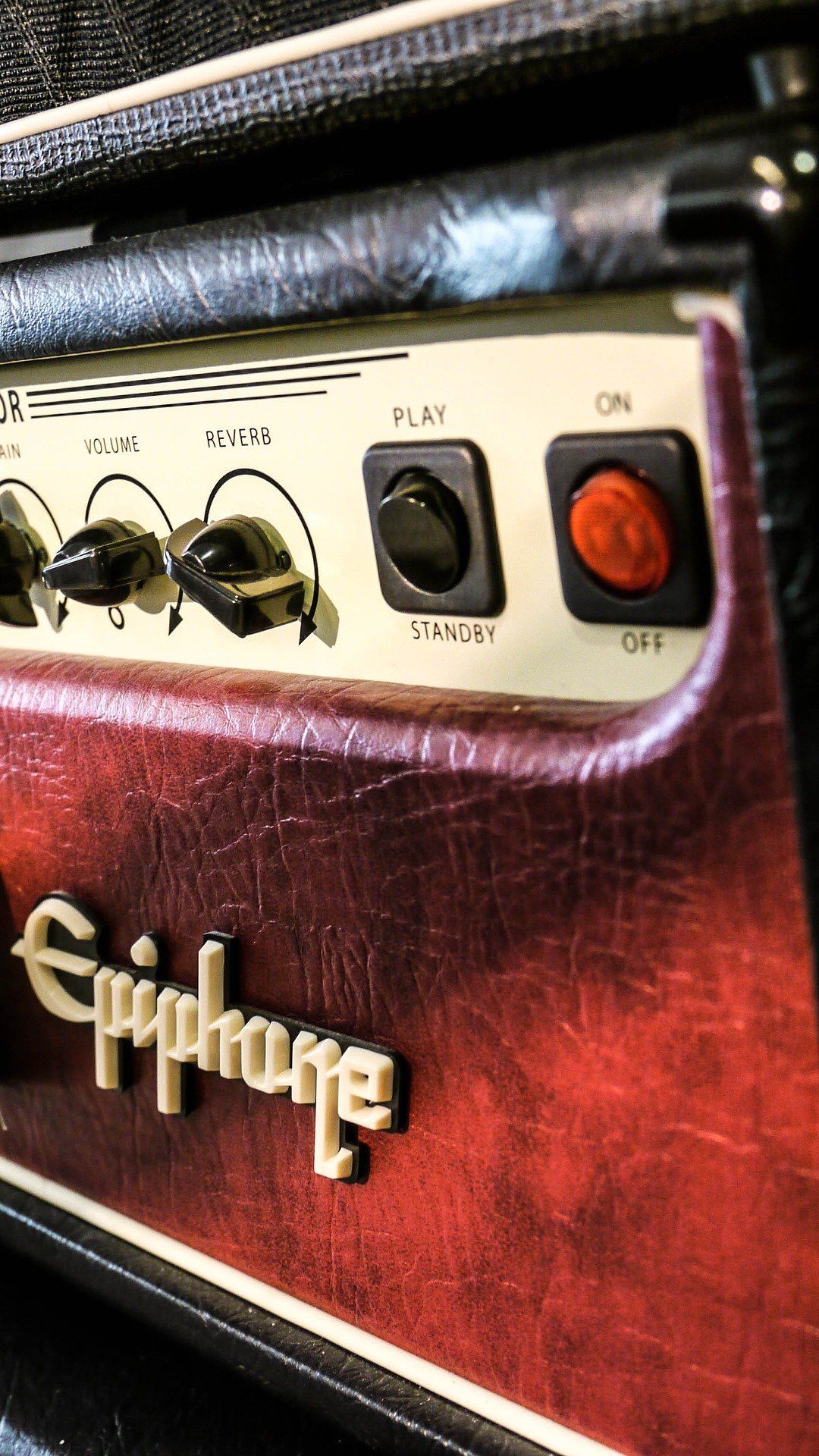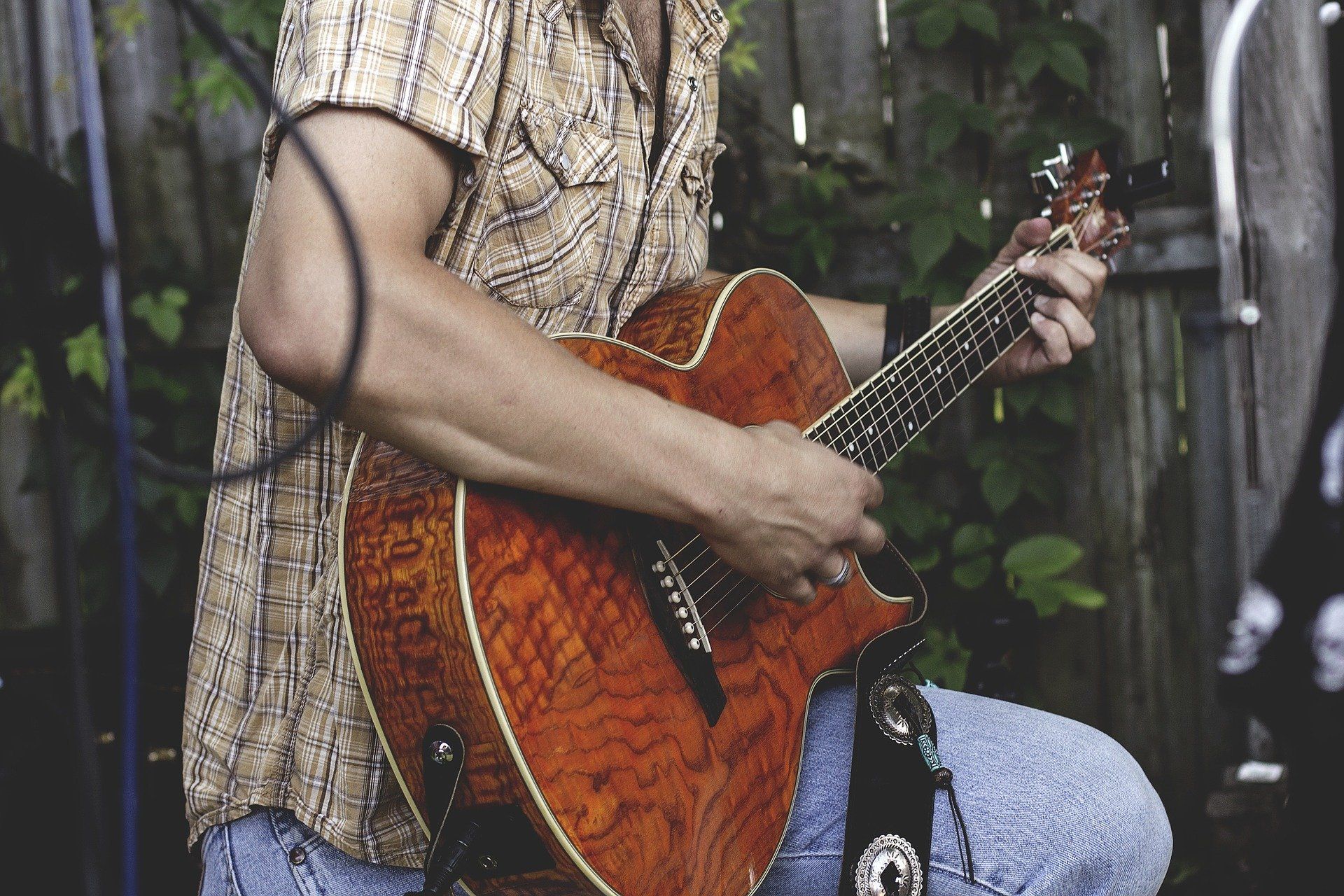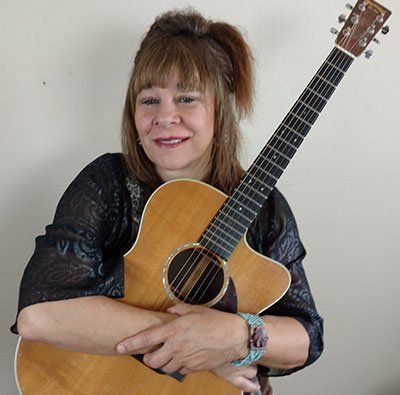Punch Through Plateaus In Your Playing - Featuring Jamie Andreas
The highly-acclaimed Jamie Andreas (of Guitar Principles) is here to give us some excellent advice on getting past frustrating plateaus on the guitar.

Every guitar player, at some point in their development, hits a plateau.
It's frustrating, isn't it? When no matter how hard you try, you just can't seem to get to the next level.
It's as if there's an invisible wall in front of you, preventing you from progressing.
Thankfully, Jamie has some excellent strategies for conquering guitar plateaus - focusing on the mental
aspect of the problem, which as she points out is often the most important issue.
Plateaus - Jamie Andreas
I believe we all know that the usual reaction to this situation is a negative one; frustration perhaps mixed with anger, and a little despair thrown in for good measure! When we can’t get something to sound the way we hear someone else play it, even after lots of practice and lots of time, it IS a very frustrating, annoying situation.
So, when we keep getting negative feedback, in the form of repeated failed attempts to be able to do something, it starts to take the wind out of our sails, and we begin to lose confidence in ourselves. Diminished desire for practising usually follows rather quickly.
Sure, people who are called “Masters” hit plateaus, but they have learned not to react in ways that will prevent

So the Master sits, and studies, and if there is one thing a Master has, it’s patience!
If these feelings were examined, if these feelings were seen as judgements about reality rather than “facts” about reality, the road to mastery would begin to become visible. If these feelings were examined, we would find that it is not really the natural frustration of not getting what we want that is the biggest problem, but rather, it is the fact that we are, underneath that, allowing ourselves to feel inferior and inadequate. THAT is the real culprit.
The Master becomes so involved in the process of communing with the conditions of the plateau that the desire to
Because of this, the depth of understanding of the Master increases, and the rising to a new level of ability appears
All of what you see in The Principles is the result of my time spent, sometimes many years, on my own plateaus.
Because the Master does not allow frustration and despair to obstruct the flow from the inside to the outside, he

Jamie Andreas is the author of the world acclaimed method for guitar " The Principles of Correct Practice For Guitar ". Called "The Holy Grail" of guitar books, and "The International Bible Of Guitar", the Principles has enabled thousands of students worldwide who tried and failed to learn to play guitar for years or even decades, to become real guitar players.
In 2012 Jamie was profiled in the book "Guitar Zero" (Penguin Press 2012), a study of how adults learn to play guitar. NYU Professor Dr. Gary Marcus interviewed some of the worlds leading guitarist/teachers, including jazz legend Pat Martino and Tom Morello ("Rage Against The Machine"). He said.
"Another teacher who impressed me immensely was Jamie Andreas. The more we talked, the more impressed I became. Jamie is one of the few teachers who is interested in the relationship between muscle and brain and how to use one's body efficiently. Swim coaches and golf teachers consider such questions all the time, but it is decidedly rare in the field of guitar instruction.
Jamie continues to make her unique teaching methods available through her website www.guitarprinciples.com .
